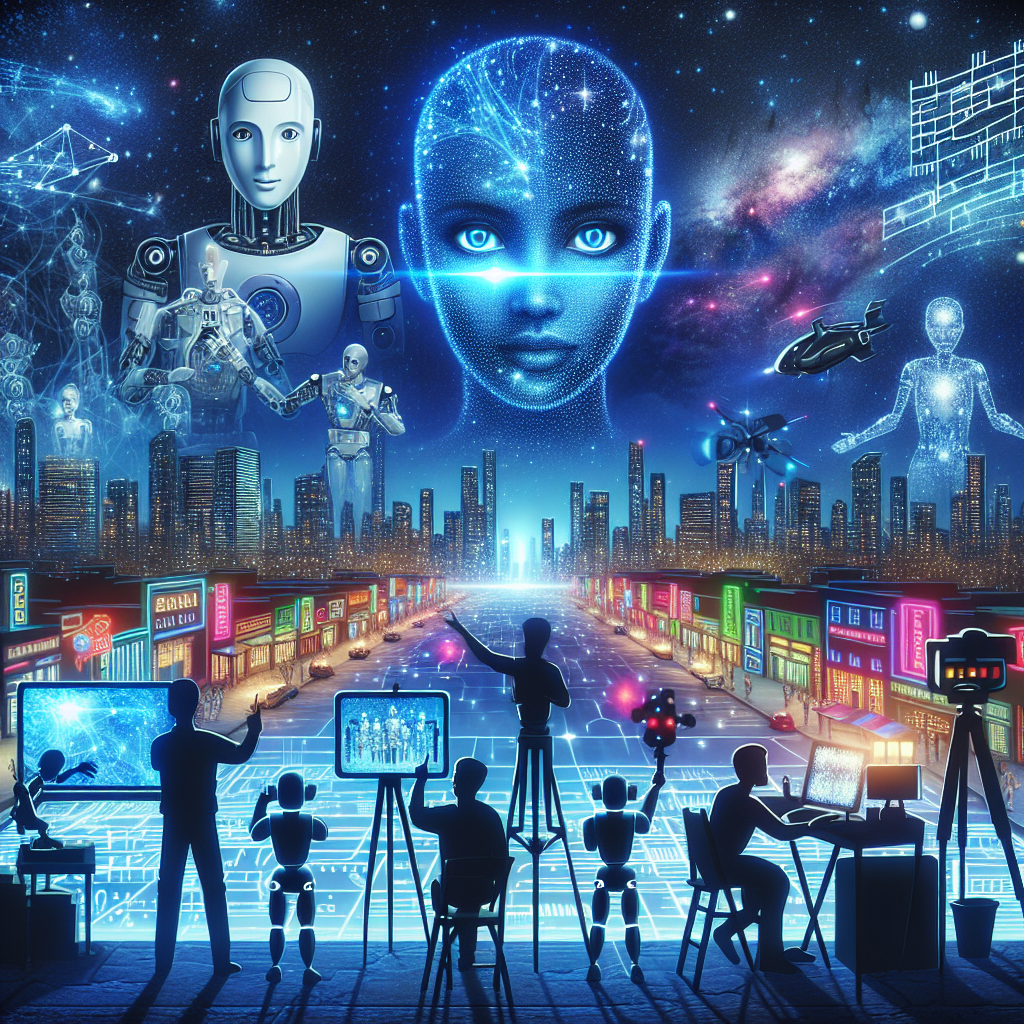The Future of AI Development in Entertainment
Artificial Intelligence (AI) has become an integral part of our daily lives, revolutionizing industries such as healthcare, finance, and transportation. In recent years, AI has also made significant strides in the field of entertainment, transforming the way we consume and interact with content. From personalized recommendations on streaming platforms to virtual reality experiences, AI is reshaping the entertainment landscape in exciting ways. In this article, we will explore the future of AI development in entertainment and its implications for the industry.
AI in Content Creation
One of the most promising applications of AI in entertainment is content creation. AI algorithms can analyze vast amounts of data to identify trends and patterns, helping creators generate new and engaging content. For example, AI-powered tools can assist filmmakers in scriptwriting, video editing, and even casting decisions. These technologies enable creators to streamline their workflow and produce high-quality content more efficiently.
AI is also being used to create entirely new forms of entertainment, such as generative art and music. Generative algorithms can produce endless variations of visual and auditory content, allowing artists to explore new creative possibilities. With AI, creators can push the boundaries of traditional art forms and experiment with innovative techniques.
AI in Personalization
Another key area where AI is making a significant impact in entertainment is personalization. Streaming platforms such as Netflix and Spotify use AI algorithms to analyze user preferences and behavior, providing personalized recommendations for movies, TV shows, and music. By leveraging AI, these platforms can deliver a more tailored and engaging experience for their users, increasing user engagement and retention.
AI-powered personalization extends beyond content recommendations. Virtual assistants like Amazon’s Alexa and Google Assistant can provide personalized entertainment experiences, such as creating custom playlists or suggesting new movies based on a user’s viewing history. As AI technology continues to advance, these virtual assistants will become even more intuitive and responsive, enhancing the overall entertainment experience for users.
AI in Gaming
AI is also transforming the gaming industry, enhancing gameplay experiences and creating new opportunities for game developers. AI-powered algorithms can generate realistic simulations, create intelligent non-player characters, and optimize game mechanics for better player engagement. Games like Minecraft and Fortnite use AI to dynamically generate game worlds and adapt to player behavior, providing a more immersive and personalized gaming experience.
AI is also driving innovation in game design and development. Tools like Unity’s ML-Agents allow developers to create AI-driven characters and environments, enabling more complex and dynamic gameplay experiences. As AI technology continues to evolve, we can expect to see more interactive and immersive games that push the boundaries of traditional gaming conventions.
AI in Virtual Reality
Virtual reality (VR) is another area where AI is poised to make a significant impact in entertainment. AI algorithms can enhance VR experiences by providing more realistic simulations, intelligent interactions, and personalized content. For example, AI-powered chatbots can create lifelike avatars that respond to user input in real-time, making VR experiences more engaging and interactive.
AI is also being used to improve the performance and user experience of VR devices. By analyzing user behavior and feedback, AI algorithms can optimize VR applications for better performance, reduce motion sickness, and enhance immersion. As VR technology becomes more mainstream, AI will play a crucial role in shaping the future of virtual entertainment.
FAQs
Q: How is AI being used in the entertainment industry?
A: AI is being used in various ways in the entertainment industry, including content creation, personalization, gaming, and virtual reality. AI algorithms help creators generate new content, provide personalized recommendations to users, enhance gameplay experiences, and improve VR simulations.
Q: What are some examples of AI in entertainment?
A: Some examples of AI in entertainment include Netflix’s recommendation algorithm, AI-generated art and music, AI-driven game characters, and virtual assistants like Alexa and Google Assistant. These technologies are reshaping the entertainment landscape and creating new opportunities for creators and developers.
Q: What are the benefits of AI in entertainment?
A: AI in entertainment offers several benefits, including improved content creation, personalized experiences for users, enhanced gameplay experiences, and more immersive VR simulations. AI technology enables creators to be more efficient and innovative, providing a more engaging and tailored entertainment experience for audiences.
Q: What are the challenges of AI in entertainment?
A: Despite its many advantages, AI in entertainment also poses some challenges, such as privacy concerns, ethical considerations, and potential biases in algorithms. It is essential for creators and developers to address these challenges and ensure that AI technology is used responsibly and ethically in the entertainment industry.
In conclusion, the future of AI development in entertainment is bright, with endless possibilities for innovation and creativity. As AI technology continues to evolve, we can expect to see more personalized, interactive, and immersive experiences that push the boundaries of traditional entertainment. By harnessing the power of AI, creators and developers can revolutionize the way we consume and interact with content, making entertainment more engaging, diverse, and accessible for audiences around the world.

